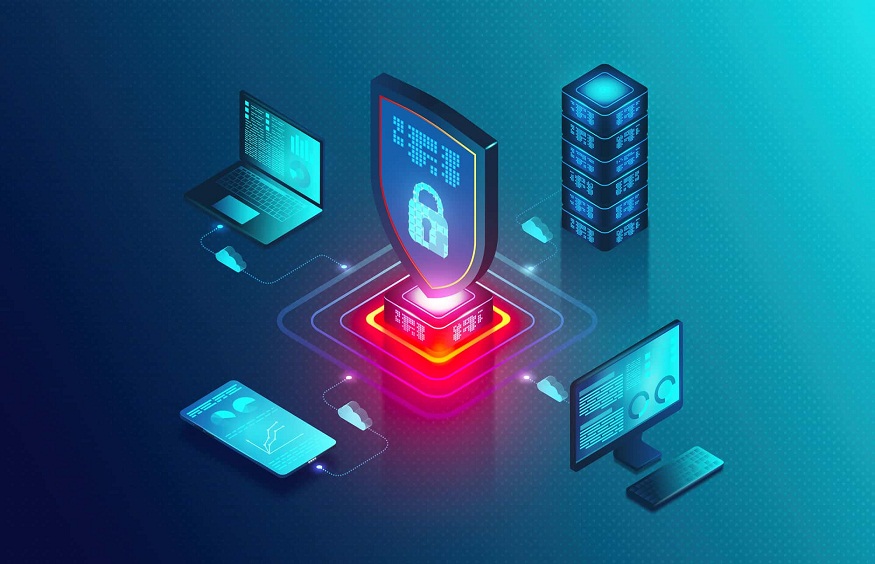Maintaining strong cyber hygiene is one of the foundational practices necessary for businesses striving to meet the Cybersecurity Maturity Model Certification (CMMC) requirements. Cyber hygiene refers to the routine practices and precautions that organizations take to protect their networks, data, and systems from cyber threats. For contractors working with the Department of Defense (DoD), following effective cyber hygiene practices is critical not only for protecting sensitive data but also for achieving CMMC compliance. With the support of a CMMC consultant, companies like MAD Security can implement effective cyber hygiene strategies that align with CMMC cybersecurity standards.
The Role of Cyber Hygiene in CMMC Compliance
Cyber hygiene is deeply integrated into the CMMC framework, which establishes cybersecurity requirements for defense contractors handling controlled unclassified information (CUI) and federal contract information (FCI). The goal of the CMMC is to ensure that contractors have the necessary security measures in place to protect DoD information. Strong cyber hygiene helps ensure that these security measures are consistently maintained and effectively implemented across all levels of an organization.
At the basic level of CMMC compliance, businesses are required to demonstrate good cyber hygiene practices, such as regularly updating software, patching vulnerabilities, and controlling access to sensitive data. For higher levels of certification, these practices become even more advanced, requiring robust security measures such as encryption, multi-factor authentication, and continuous monitoring.
Incorporating effective cyber hygiene practices into daily operations allows organizations to meet these requirements more easily. A CMMC consultant can help businesses identify and implement these practices, ensuring that they are well-prepared for CMMC audits and capable of maintaining compliance over time.
Best Practices for Cyber Hygiene
To meet CMMC cybersecurity requirements, businesses must adopt a proactive approach to cyber hygiene. This involves not only implementing technical safeguards but also fostering a security-conscious culture within the organization. Employees at all levels must be aware of their role in maintaining cybersecurity and take active steps to protect the company’s digital assets.
Some of the core cyber hygiene practices that contribute to CMMC compliance include regularly updating software and firmware to address known vulnerabilities. Keeping systems up to date with the latest patches ensures that any weaknesses in the software are resolved before cybercriminals can exploit them. Another critical practice is managing user access to sensitive information. By limiting access to only those employees who need it, businesses can reduce the risk of unauthorized access to CUI and FCI.
Employee training is another essential aspect of cyber hygiene. A well-trained workforce is less likely to fall victim to phishing attacks or other forms of social engineering, which are common entry points for cybercriminals. Regular training programs that cover topics such as recognizing suspicious emails, creating strong passwords, and reporting security incidents help build a strong defense against cyber threats.
The Connection Between Cyber Hygiene and System Security Plans
For companies seeking CMMC compliance, developing a detailed System Security Plan (SSP) is a key requirement. The SSP outlines the organization’s cybersecurity framework, including the measures in place to protect CUI and FCI. Effective cyber hygiene practices play an integral role in the creation and maintenance of this plan.
The SSP must document how cyber hygiene practices are integrated into the organization’s daily operations. This includes detailing how systems are monitored for vulnerabilities, how software updates are managed, and how user access controls are implemented. Having clear policies and procedures for maintaining cyber hygiene demonstrates to auditors that the organization takes cybersecurity seriously and adheres to CMMC standards.
Working with a CMMC consultant can simplify the process of developing an SSP. A consultant can provide guidance on how to document cyber hygiene practices effectively and ensure that the SSP meets all CMMC cybersecurity requirements.
Reducing Risk Through Continuous Monitoring
One of the key aspects of good cyber hygiene is the continuous monitoring of systems and networks for potential security threats. In the context of CMMC compliance, continuous monitoring allows businesses to detect and respond to cyber incidents quickly, minimizing the impact of potential breaches.
By implementing tools such as Security Information and Event Management (SIEM) systems, organizations can track and analyze security events in real-time. This proactive approach to cybersecurity ensures that any suspicious activity is detected early, allowing for swift mitigation before the damage escalates. Continuous monitoring also plays a role in maintaining compliance, as it provides evidence that the organization is actively managing its security posture.
CMMC cybersecurity guidelines emphasize the importance of this proactive approach, and a CMMC consultant can help businesses choose the right tools and strategies for effective continuous monitoring. By doing so, companies can not only reduce their risk of cyberattacks but also meet the stringent requirements of CMMC.
The Impact of Poor Cyber Hygiene on CMMC Certification
Failing to implement effective cyber hygiene practices can have serious consequences for companies seeking CMMC compliance. Weaknesses in cybersecurity posture can lead to failed audits, putting DoD contracts at risk. Poor cyber hygiene can also result in data breaches, which can be costly both in terms of financial loss and reputational damage.
Without regular updates, vulnerability management, and proper access controls, organizations may inadvertently expose CUI and FCI to unauthorized individuals. Cybercriminals are constantly looking for opportunities to exploit these weaknesses, and businesses that do not prioritize cyber hygiene are at a higher risk of falling victim to cyberattacks.
Investing in cyber hygiene is essential for maintaining CMMC compliance. Organizations that take a proactive approach to cybersecurity are better positioned to protect sensitive data and pass CMMC audits. A CMMC consultant can provide expert advice on how to improve cyber hygiene practices, ensuring that the company’s cybersecurity measures are comprehensive and up to date.
Strengthening CMMC Compliance Through Cyber Hygiene
Cyber hygiene forms the foundation of any effective cybersecurity strategy and plays a critical role in achieving and maintaining CMMC compliance. By regularly updating systems, training employees, and monitoring networks for threats, businesses can protect CUI and FCI from unauthorized access and potential breaches. Working with a CMMC consultant allows organizations to implement these best practices effectively and ensure that they meet the rigorous standards required by CMMC.
As the cybersecurity landscape continues to evolve, maintaining strong cyber hygiene will remain essential for defense contractors and any organization seeking to safeguard sensitive information.

